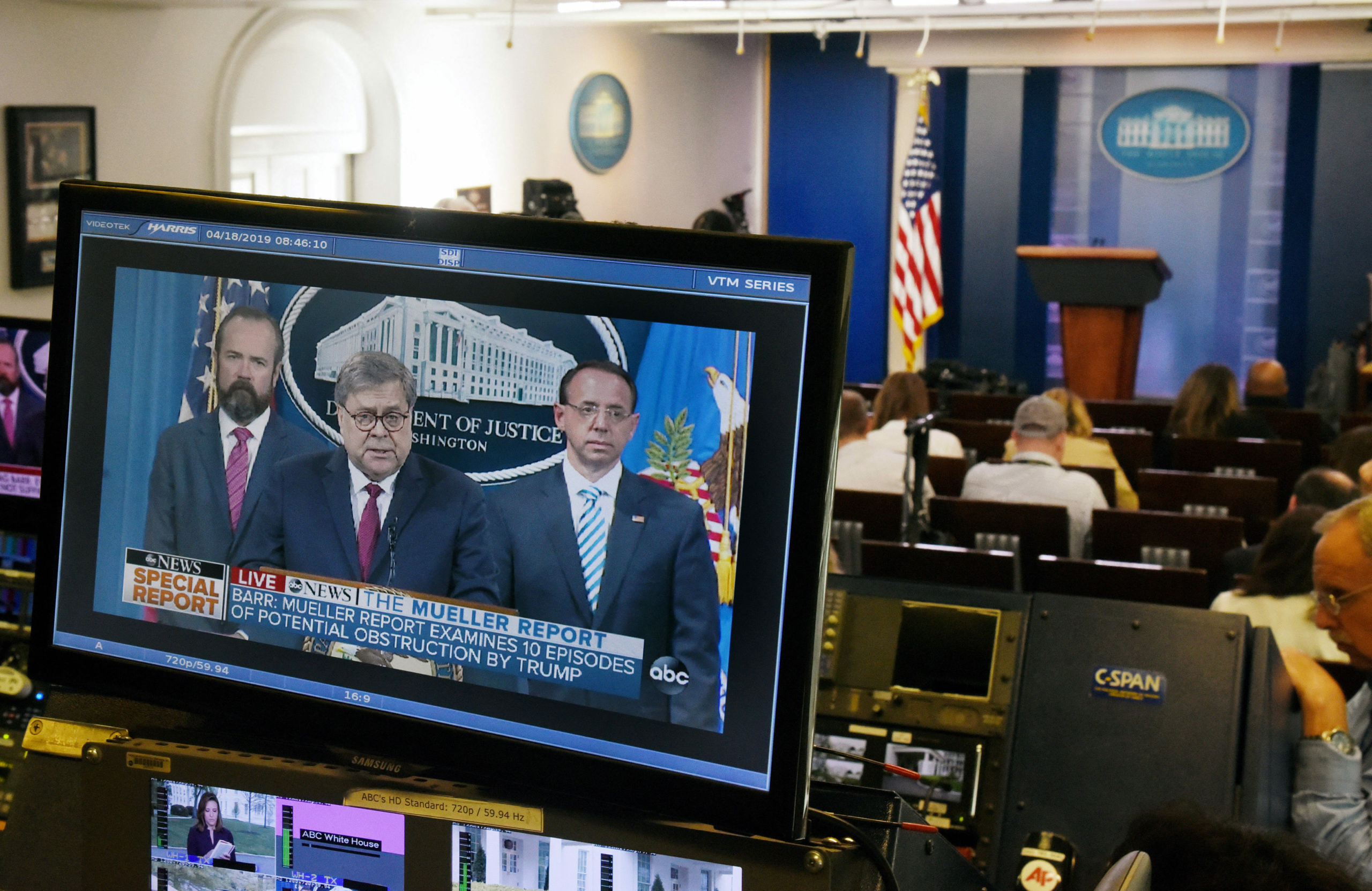Sign up for The Media Today, CJR’s daily newsletter.
Copies of the report by Robert Mueller have been distributed, like flashlights during a deep fog. What we’ve made out so far, and will continue to see, is a landscape of not only the new but also what had been there all along—what we’d become accustomed to seeing only through the obscured view of heavy clouds.
For more than two years, our eyes were adjusting, and I’m so impressed and grateful for the excellent journalism done by The New York Times, The Washington Post, The Guardian, and all the rest, guiding our way through the story of the Donald Trump campaign and interference by Russian operatives. Still, for that long, the press has lurched forward with only a vague sense of where we were, following signs pointing somewhere near “collusion.”
Mueller Report LIVEBlog: CNN’s odd coverage, BuzzFeed’s controversial scoop, and more
At the same time, we were told, “Collusion is not a crime.” For instance: June 2017, when Brit Hume told Fox viewers, “Collusion, while it would be obviously alarming and highly inappropriate for the Trump campaign—of which there is no evidence, by the way, of colluding with the Russians—it’s not a crime.” And July 2018, when Rudy Giuliani, Trump’s lawyer, appeared on Fox & Friends, saying the same, and insisting that Trump didn’t do it. “It’s unclear how the term ‘collusion’ became so embedded in the public narrative about the Russian attacks on our election,” Randall D. Eliason wrote in the Post the next day. “But what is clear is that the unfortunate prevalence of the term has given the president’s legal team another tool with which to sow confusion and mistrust about special counsel Robert S. Mueller III’s investigation.”
That confusion has continued, if only as a matter of convenience—that is, how else can editors hope to keep attention on a complicated legal story of great importance other than to repeat the vaguely terrifying, hard-to-understand word through which its magnitude seems best expressed? “Collusion” proliferated, in our newspapers and on our TVs, and most of all, on Twitter, where Trump used it with his signature blend of lunacy and lucidity, randomness and plot.
That “collusion” is not against the law is irrelevant, Eliason went on in his piece. “Saying the president is off the hook because there is no crime called ‘collusion” is akin to claiming the president could shoot someone on 5th Avenue and escape prosecution because the criminal statutes prohibit ‘homicide’ not ‘shooting.’”
How else can editors hope to keep attention on a complicated legal story of great importance other than to repeat the vaguely terrifying, hard-to-understand word through which its magnitude seems best expressed?
Now we can turn to Mueller, who wrote, on the second page of his report, “In evaluating whether evidence about collective action of multiple individuals constituted a crime, we applied the framework of conspiracy law, not the concept of ‘collusion.’” The office of the attorney general has used “collude” in talking about the investigation, he acknowledged, and “the term has frequently been invoked in public reporting about the investigation. But collusion is not a specific offense or theory of liability found in the United States Code, nor is it a term of art in federal criminal law.” So, Mueller, says, collusion’s not on the menu—what we’ve got is criminal conspiracy. To say “No Collusion” after reading as far as page two is like entering a Chinese restaurant and ordering linguini.
Whatever. “Criminal conspiracy” is relevant, and legal standards, we know, exist in their own realm, wrapped in their own fog. “Collusion” is still the word underfoot, and now we can see Trump and William Barr, his attorney general, are the ones tripping us up. During Barr’s morning show—a live performance to supplement the summary of the Mueller report that he’d already shared with everyone—he said that there was no “collusion” five times. On one occasion, he combined this with a dig at the press: “There was relentless speculation in the news media about the president’s personal culpability,” he told the crowd of reporters facing him. “Yet, as he said from the beginning, there was in fact no collusion.” Trump followed up, on Twitter, with a Game of Thrones meme that included the words “No Collusion” and “Game Over.”
Trump’s presidency—and before that, his campaign, his New York life—has been a cauldron of injustice, steaming and poisonous. There is so much offensive about him that journalists can hardly keep up—his taxes, his treatment of women, his treatment of immigrants, his treatment of the environment, and on and on. Some of his jabs, even laws, we know, are meant to blow smoke into the air. “Collusion” has been a way for him to deny guilt of a nonexistent crime—a transgression right for his universe of alternative facts.
The press has played into it: not always able to see the full picture, coverage has grasped for meaning in the “collusion” narrative without really knowing what it means. Okay, Mueller’s investigation did not establish that the Trump campaign coordinated with the Russian government in its election interference. But it shows a lot. It’s a humbling, heavy document, and we’ll need to carry it with us as we continue on, doing our best to light our way through the shadows.
ICYMI: The most prestigious awards ceremony in photojournalism disinvited a photographer
Has America ever needed a media defender more than now? Help us by joining CJR today.



